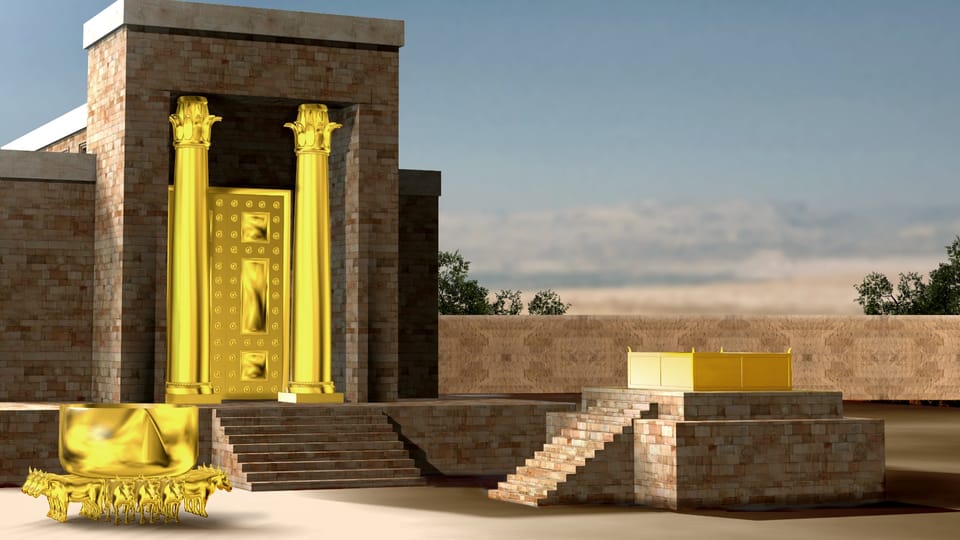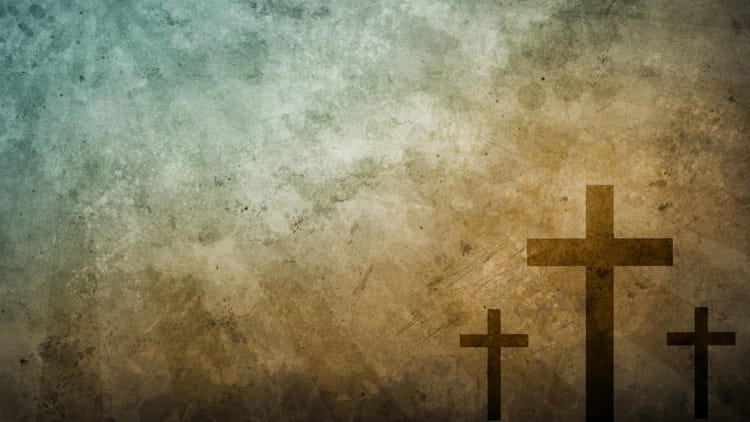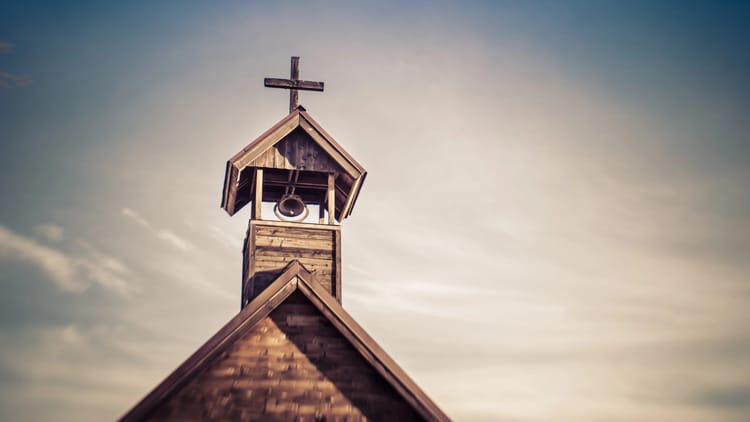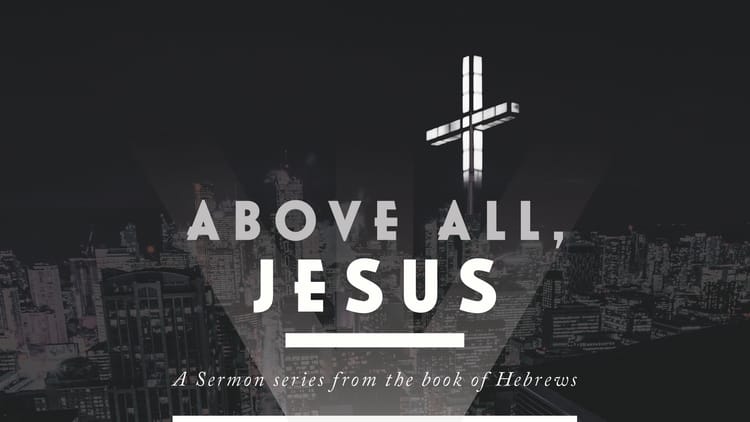Your Representative in Heaven (Hebrews 4:14-5:10)

Big Idea: Jesus is the representative we need, so hold fast and draw near to him.
I had a terrifying experience a few years ago.
I got a traffic ticket. No problem, right? Most of us have had one of those. I decided to fight the charge. And so I went to court. It can’t be that hard. It’s not a criminal court. It’s just a traffic one.
So I got there a little early. I waited for my name to be called. While I waited, they called other people up. Most of them were boring. But then they called one guy up. I forget the exact details, but the judge got really angry. He ended up suspending the guy’s license and sending the guy to jail. I sat there watching as the bailiff took him away in handcuffs, and as I watched, I heard my name being called. I was the next defendant to face that angry judge that had just thrown somebody in jail.
It was at that moment that I thought, “I should have hired a lawyer.” I didn’t think I needed a lawyer for a traffic violation, but I was starting to rethink my decision. Maybe I needed someone to represent me after all and to keep me out of jail.
We need a representative. You need one if you appear before an angry judge. And, according to this passage, you need one when you stand before a holy God. But that’s exactly what God has given us, which is very good news for every one of us here today.
Hebrews So Far
Right now, we’re working through the book of Hebrews. Hebrews was written to a group of Christians who were struggling spiritually. They were facing persecution. Some of them were tempted to abandon their faith and to drift away from Jesus and the church.
And so the writer — we don’t know who — wrote this letter, and the letter has one theme: Jesus is better. Jesus is above anyone and anything else. Jesus is the pinnacle of revelation. Jesus is above angels. Jesus is better than Moses and Joshua. There’s nobody better than Jesus, so don’t abandon him. Don’t even get too close to the edge. Stick with him and stand guard. Because, as the previous passage says, we’re in the same danger as Israel centuries ago. We could fail to believe the good news about Jesus, drift away, and miss out on the blessings that God has prepared for those who trust him.
The passage we looked at last week was intended to warn us: don’t miss out! The passage this week is meant to encourage us: hold fast your confession, and draw near.
Here’s why we need this message. In the passage right before, the writer left us pretty exposed. Here’s what he said.
For the word of God is living and active, sharper than any two-edged sword, piercing to the division of soul and of spirit, of joints and of marrow, and discerning the thoughts and intentions of the heart. And no creature is hidden from his sight, but all are naked and exposed to the eyes of him to whom we must give account. (Hebrews 4:12-13)
God’s word reveals. God’s word is alive and active. As Spurgeon said, “It lays bare a man’s inmost secrets; yea, it discovers to him that which he had not even himself perceived. The Christ that is in the Word sees everything.” Nobody can hide when exposed by God’s word. Everything is going to be revealed. And here’s the problem, in verse 13: “all are naked and exposed to the eyes of him to whom we must give account.”
How do you feel about this? I know how I feel: terrified. If I need help to stand before a traffic judge, we really need help to stand completely exposed before a holy God.
That’s where today’s passage begins. God has given us a representative so we can stand before a holy God.
The Principles of Priesthood
Hebrews 5:1 introduces us to the role of Old Testament priests. Their job was to represent Israel before God:
For every high priest chosen from among men is appointed to act on behalf of men in relation to God, to offer gifts and sacrifices for sins. He can deal gently with the ignorant and wayward, since he himself is beset with weakness. Because of this he is obligated to offer sacrifice for his own sins just as he does for those of the people. And no one takes this honor for himself, but only when called by God, just as Aaron was. (Hebrews 5:1-4)
According to this passage, the Old Testament priests had four principles that allowed them to represent people before God.
- First, they were chosen from among the people (5:1). To represent the people, they had to be one of the people. No angel, no other creature other than a human could act on behalf of the people. The priest has to be like those that he’s going to represent.
- Second, they offered sacrifices for the people (5:1). Verse 1 says that they existed “to offer gifts and sacrifices for sins.” That was their whole job. That was their whole ministry: to carry out the priestly sacrifices, the most important of which took place on the Day of Atonement when the high priest slaughtered one goat as an offering for the sin of the people, and then laid a hand on another goat, confessed all the sins of the people, and then sent the goat out into the desert on behalf of the people. By doing this, the high priest dealt with the people’s sin problems so they could stand before a holy God.
- Third, they have to be able to sympathize with the people (5:2). “He can deal gently with the ignorant and wayward, since he himself is beset with weakness." If a priest is going to represent people, they have to be able to understand from first-hand experience what it’s like to struggle. A harsh, judgmental priest is not what anyone needed. They needed someone who understands.
- Finally, the priest has to be chosen (5:4). There’s no such thing as a self-appointed priest. It’s not an elected office. Aaron and his successors were always chosen by God. That’s the way priesthood works. Priests were divinely chosen to represent people before God.
Because of their sin, Israel needed a high priest to represent them before God, to offer sacrifices for their sin. The priest had to be one of them and understand them, and also to be chosen by God, in order to carry out this important role.
We need a representative as we stand exposed before a holy God, and God was gracious enough to grant Israel a series of priests who could fulfill this important role.
But look at what the writer does as he writes this letter. He says that we’ve been given an even better priest than they were given. They didn’t know it when they received this letter, but the entire sacrificial system was about to end with the destruction of the temple in Jerusalem shortly after they received this letter. In any case, Jesus’ priesthood is even better. This is what is going to allow us to stand before God, even when we’re exposed. Jesus is an even better high priest.
Why? The writer goes in reverse order:
- Priests and to be chosen by God. Well, Jesus was hand-picked by God for this role. “So also Christ did not exalt himself to be made a high priest, but was appointed by him who said to him, ‘You are my Son, today I have begotten you’; as he says also in another place, ‘You are a priest forever, after the order of Melchizedek’” (5:5-6). We’ll return another Sunday to the Melchizedek theme. But notice here: Jesus didn’t take on the position of our high priest himself. He didn’t take on that glory on his own initiative. God appointed him to that role. He’s an even better priest, because his priesthood has no beginning and no ending. The same Jesus that Hebrews has talked about earlier — the exalted Jesus over all creation — has been appointed as our great high priest.
- Priests had to sympathize with the people. They had to be one of them. Well, Jesus sympathizes with us. “In the days of his flesh, Jesus offered up prayers and supplications, with loud cries and tears, to him who was able to save him from death, and he was heard because of his reverence. Although he was a son, he learned obedience through what he suffered” (5:7-8). Jesus knows what it’s like to suffer. Jesus suffered, and he passed the school of suffering. He knows what it’s like. As George Guthrie says, he graduated from that school and accomplished his mission. Are you suffering? Jesus understands. He is able to represent you to God.
- Priests offered sacrifices to God. Well, look at the sacrificial provision of Jesus our great high priest. “And being made perfect, he became the source of eternal salvation to all who obey him…” (5:9). The old priests used to offer animals as sacrifices. At the cross, Jesus offered himself as a sacrifice for our sins. He became the source of eternal salvation through his death.
- Priests come from among humanity. Well, Jesus comes from among humanity. Jesus became human so he could represent us. In fact, he comes from an even older order of priests than Aaron’s descendants. He comes from the order of Melchizedek, which predates the Aaronic priests by centuries.
In other words, Jesus is perfectly qualified to represent us before God. Israel’s priests pointed forward to his priesthood. He’s the high priest we need.
How can we who are sinful and exposed stand before a holy God? We need a representative. Jesus is that representative, but he’s even better than the Old Testament priests. He is the representative we need.
How to Respond
How do we respond to Jesus, the representative, the high priest we need?
Two actions:
Hold fast
“Since then we have a great high priest who has passed through the heavens, Jesus, the Son of God, let us hold fast our confession” (4:14).
Hold firmly to the faith. Jesus our great high priest has gone into heaven and is representing us before God. He is our only hope. Stay close to him. Don’t even think about turning away from him. He is our only hope.
We’ve been given a confession to hold onto, and as J.C. Ryle says, we’re “required to hold fast as if our lives depend upon it — for they do.”
Don’t stray from Jesus and the truth about him. Hold onto him with all your might.
But there’s one other way to respond to Jesus, the representative, the high priest that we need:
Draw near
For we do not have a high priest who is unable to sympathize with our weaknesses, but one who in every respect has been tempted as we are, yet without sin. Let us then with confidence draw near to the throne of grace, that we may receive mercy and find grace to help in time of need. (4:15-16)
We find it easy to run away from God. It’s not natural or easy for us to run to God. Our pride and our sinful tendencies tend to get in the way.
But we don’t have to hide from Jesus, even in our need, even in our sin. We can run to him with confidence and find what we need when we need it. Instead of fear, we can approach with confidence, because it’s a throne of grace.
I love how John Calvin put it:
The glory of God cannot but fill us with despair, such is the awfulness of his throne. Therefore in order to help our lack of confidence, and to free our minds of all fears, the apostle clothes it with grace and gives it a name which will encourage us by its sweetness. It is as if he were saying, Since God has fixed on His throne… a banner of grace and of fatherly love towards us, there is no reason why His majesty should ward us off from approaching Him.
Friends, Jesus is the representative we need, so hold fast and draw near to him.





